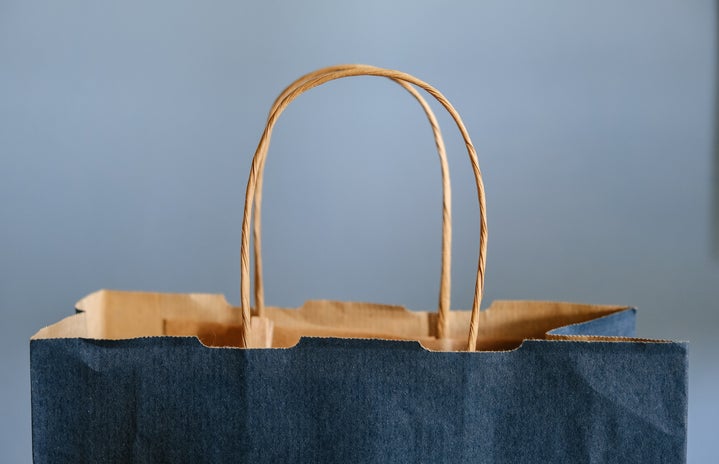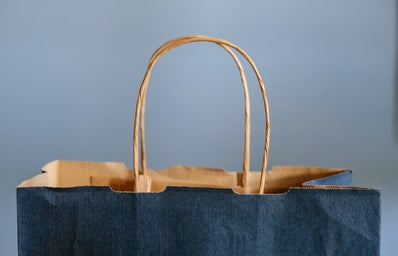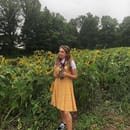After moving back home due to COVID-19 to continue my studies in my childhood bedroom, I found a dreamcatcher I had completely forgotten about! After hanging it up I realized it was kind of falling apart and that maybe I should get a new one… But where can I get one during quarantine? My next thought was to find somewhere to purchase one online. This led me to the question, can you own a dream catcher without being offensive to Indigenous culture?
What are the Meaning and Purpose of Dreamcatchers?
Dreamcatchers are culturally significant to many Indigenous peoples and groups. They represent traditions and legends that have been passed down orally over generations and are a recognizable cultural symbol. A dreamcatcher is meant to trap the bad dreams and thoughts that are in the night air and stop them from entering the mind of those it is protecting, while the good dreams are still able to get through. There are many stories that have been passed down orally citing their tradition. The Ojibwe believe a spider first gifted a dreamcatcher to an old woman for protecting him while he spun his web.
Indigenous Views
Many Indigenous peoples are okay with non-Indigenous people owning a dreamcatcher, so long as they respect the dreamcatcher’s significance and culture and have purchased it from an Indigenous person. Where you get your dreamcatcher from matters. If you chose to learn about it and support an Indigenous person by purchasing their art, then that’s one thing. However, if you saw it while shopping at a major store and thought it was cute and don’t even know where or how it was made? Then you probably shouldn’t purchase it.
Commodification
Many non-Indigenous peoples attempt to capitalize on Indigenous cultural goods by creating cheap inauthentic knockoffs. Even celebrities like Vanessa Hudgens have been accused of wearing unethical Indigenous dreamcatchers. Many retailers use stereotypical Indigenous images and symbols to their advantage to mass-produce products pushing Indigenous art out of mainstream markets.
The marketplace is filled with retailers offering up symbols of Indigenous goods on their products without consulting Indigenous peoples. Stores and retailers like H&M, Nike, Forever 21 and Urban Outfitters have been accused of appropriation in the past, and Shein currently has many non-Indigenous-made dreamcatchers for sale on their website.
There is a fine line between appropriation and appreciation….
Then Where Should You Purchase Them?
There are many ethical purchasing options for dreamcatchers and other Indigenous pieces of art!
Some questions to consider when purchasing from somewhere are:
Do you know the maker? The origin of the piece? Do you know the cultural significance?
Always double-check that you are buying from a legitimate seller and not someone misrepresenting a product that in reality was made by a non-Indigenous person. Purchasing from non-Indigenous sellers takes away the livelihood of authentic, Indigenous artists who learnt their craft through many generations. Remember that you have purchasing power.
Below are some great Esty shops and online retailers that support Indigenous peoples and/or groups:
Etsy Shops:
https://www.madeincanadagifts.ca/collections/canadian-first-nations-dream-catchers-mohawk
https://www.etsy.com/ca/shop/AhyokaStudio?ref=simple-shop-header-name&listing_id=708008658
https://www.etsy.com/ca/shop/WhisperingWindsShop?ref=simple-shop-header-name&listing_id=554041381
https://www.etsy.com/ca/shop/PohakantenStudios?ref=simple-shop-header-name&listing_id=470792636
https://www.etsy.com/ca/shop/AuthenticNativeMade?ref=simple-shop-header-name&listing_id=662291557
Other Online Retailers:
https://www.jokuma.com/art-to-adorn
Jamie Okuma is an Indigenous artist and designer who specializes in one-of-a-kind pieces.
https://eighthgeneration.com/collections/all
Eighth Generation is a Native-owned and operated company that was founded in 2008 by Louie Gong (Nooksack) — an artist, activist and educator to provide strong and ethical alternatives to “native-inspired art” in markets
http://www.beyondbuckskin.com/p/buy-native.html
Beyond Buckskin is a site that empowers Indigenous artists and designers and has a great list of where you can ethically purchase products.
You can also do some of your own research to find local places to ethically buy a dreamcatcher near you!
So, You Have a Dreamcatcher, Now What?
When Indigenous people market dreamcatchers as items that catch bad dreams, it is because those items represent that for them culturally speaking. However, the relationship between the maker and the dreamcatcher is also significant since it is a part of a cultural practice.
For this reason, some argue that the spiritual relationship fails to automatically come along as an accessory to that product. Thus, the best thing to do after ethically purchasing a dreamcatcher is to recognize its cultural significance and display it somewhere respectfully. It would also be great to continue supporting Indigenous sellers and to stay educated or speak up on Indigenous issues or cases of appropriation!
After all my research I was also happy to find out that my parents had bought my dreamcatcher from an Indigenous seller almost 15 years ago and I have since purchased a new one from one of the Etsy’s above!
Before purchasing a dreamcatcher or other cultural product, always remember to check where and how it was made to ensure it was sustainably and ethically produced!
Facts sourced from:
Martinez, Doreen E. “Wrong directions and new maps of voice, representation, and engagement: theorizing cultural tourism, indigenous commodities, and the intelligence of participation.” The American Indian Quarterly, vol. 36, no. 4, 2012, p. 545+
https://www.nativeamericanvault.com/pages/legend-of-the-dreamcatcher
https://www.firstpeople.us/FP-Html-Legends/TheLegendOfTheDreamcatcher-Chippewa.html
https://eighthgeneration.com/pages/inspired-natives-project
https://www.nativecairns.org/CAIRNS/CAIRNS.html
https://www.refinery29.com/en-us/2016/06/115298/vanessa-hudgens-dreamcatcher-cultural-appropriation
https://www.wipo.int/wipo_magazine/en/2019/04/article_0002.html



